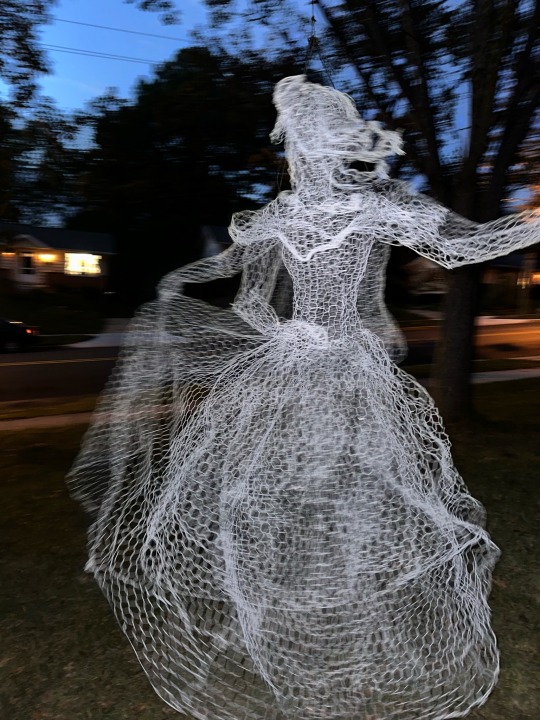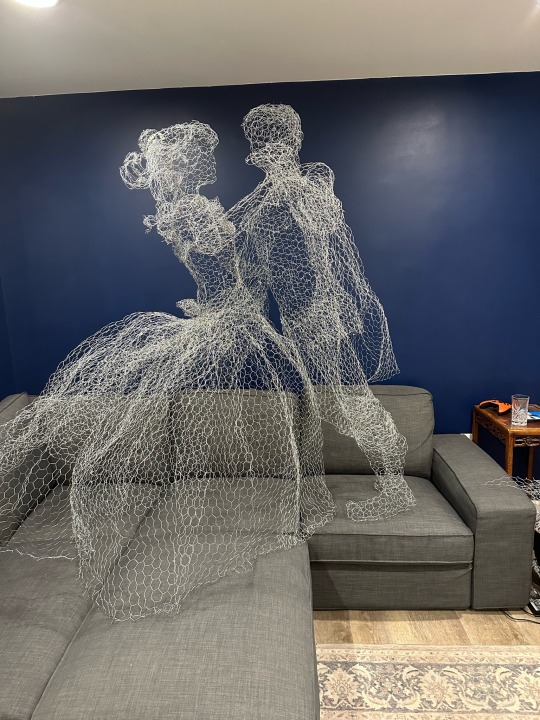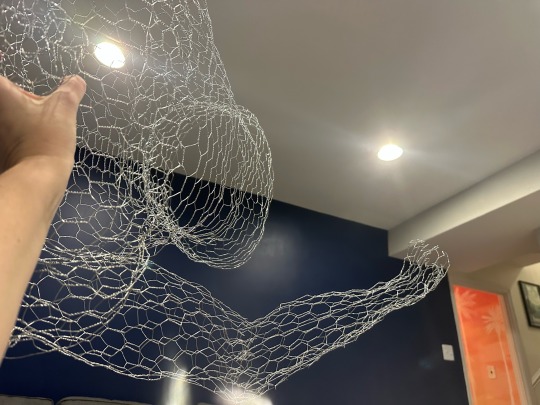amongthemoonandstars
1K posts
I reblog (/post) what I like. Currently: Mostly Rapunzel's Tangled Adventures. Always: Ann Van den Broeck, cats, mental health
Don't wanna be here? Send us removal request.
Text
Having ADHD is so fun because sometimes youre looking for something that you use regularly and definitely put away in a smart and reasonable place and you have absolutely 0 hope of remembering where and finding it. And then other times ur like "hmm I need a some kind of small pointed object. I feel like i remember seeing a paperclip under the left couch cushion a month ago, i wonder if its still there" and it is
54K notes
·
View notes
Note
they have a point though. you wouldn't need everyone to accommodate you if you just lost weight, but you're too lazy to stick to a healthy diet and exercise. it's that simple. I'd like to see you back up your claims, but you have no proof. you have got to stop lying to yourselves and face the facts
Must I go through this again? Fine. FINE. You guys are working my nerves today. You want to talk about facing the facts? Let's face the fucking facts.
In 2022, the US market cap of the weight loss industry was $75 billion [1, 3]. In 2021, the global market cap of the weight loss industry was estimated at $224.27 billion [2].
In 2020, the market shrunk by about 25%, but rebounded and then some since then [1, 3] By 2030, the global weight loss industry is expected to be valued at $405.4 billion [2]. If diets really worked, this industry would fall overnight.
1. LaRosa, J. March 10, 2022. "U.S. Weight Loss Market Shrinks by 25% in 2020 with Pandemic, but Rebounds in 2021." Market Research Blog. 2. Staff. February 09, 2023. "[Latest] Global Weight Loss and Weight Management Market Size/Share Worth." Facts and Factors Research. 3. LaRosa, J. March 27, 2023. "U.S. Weight Loss Market Partially Recovers from the Pandemic." Market Research Blog.
Over 50 years of research conclusively demonstrates that virtually everyone who intentionally loses weight by manipulating their eating and exercise habits will regain the weight they lost within 3-5 years. And 75% will actually regain more weight than they lost [4].
4. Mann, T., Tomiyama, A.J., Westling, E., Lew, A.M., Samuels, B., Chatman, J. (2007). "Medicare’s Search For Effective Obesity Treatments: Diets Are Not The Answer." The American Psychologist, 62, 220-233. U.S. National Library of Medicine, Apr. 2007.
The annual odds of a fat person attaining a so-called “normal” weight and maintaining that for 5 years is approximately 1 in 1000 [5].
5. Fildes, A., Charlton, J., Rudisill, C., Littlejohns, P., Prevost, A.T., & Gulliford, M.C. (2015). “Probability of an Obese Person Attaining Normal Body Weight: Cohort Study Using Electronic Health Records.” American Journal of Public Health, July 16, 2015: e1–e6.
Doctors became so desperate that they resorted to amputating parts of the digestive tract (bariatric surgery) in the hopes that it might finally result in long-term weight-loss. Except that doesn’t work either. [6] And it turns out it causes death [7], addiction [8], malnutrition [9], and suicide [7].
6. Magro, Daniéla Oliviera, et al. “Long-Term Weight Regain after Gastric Bypass: A 5-Year Prospective Study - Obesity Surgery.” SpringerLink, 8 Apr. 2008. 7. Omalu, Bennet I, et al. “Death Rates and Causes of Death After Bariatric Surgery for Pennsylvania Residents, 1995 to 2004.” Jama Network, 1 Oct. 2007. 8. King, Wendy C., et al. “Prevalence of Alcohol Use Disorders Before and After Bariatric Surgery.” Jama Network, 20 June 2012. 9. Gletsu-Miller, Nana, and Breanne N. Wright. “Mineral Malnutrition Following Bariatric Surgery.” Advances In Nutrition: An International Review Journal, Sept. 2013.
Evidence suggests that repeatedly losing and gaining weight is linked to cardiovascular disease, stroke, diabetes and altered immune function [10].
10. Tomiyama, A Janet, et al. “Long‐term Effects of Dieting: Is Weight Loss Related to Health?” Social and Personality Psychology Compass, 6 July 2017.
Prescribed weight loss is the leading predictor of eating disorders [11].
11. Patton, GC, et al. “Onset of Adolescent Eating Disorders: Population Based Cohort Study over 3 Years.” BMJ (Clinical Research Ed.), 20 Mar. 1999.
The idea that “obesity” is unhealthy and can cause or exacerbate illnesses is a biased misrepresentation of the scientific literature that is informed more by bigotry than credible science [12].
12. Medvedyuk, Stella, et al. “Ideology, Obesity and the Social Determinants of Health: A Critical Analysis of the Obesity and Health Relationship” Taylor & Francis Online, 7 June 2017.
“Obesity” has no proven causative role in the onset of any chronic condition [13, 14] and its appearance may be a protective response to the onset of numerous chronic conditions generated from currently unknown causes [15, 16, 17, 18].
13. Kahn, BB, and JS Flier. “Obesity and Insulin Resistance.” The Journal of Clinical Investigation, Aug. 2000. 14. Cofield, Stacey S, et al. “Use of Causal Language in Observational Studies of Obesity and Nutrition.” Obesity Facts, 3 Dec. 2010. 15. Lavie, Carl J, et al. “Obesity and Cardiovascular Disease: Risk Factor, Paradox, and Impact of Weight Loss.” Journal of the American College of Cardiology, 26 May 2009. 16. Uretsky, Seth, et al. “Obesity Paradox in Patients with Hypertension and Coronary Artery Disease.” The American Journal of Medicine, Oct. 2007. 17. Mullen, John T, et al. “The Obesity Paradox: Body Mass Index and Outcomes in Patients Undergoing Nonbariatric General Surgery.” Annals of Surgery, July 2005. 18. Tseng, Chin-Hsiao. “Obesity Paradox: Differential Effects on Cancer and Noncancer Mortality in Patients with Type 2 Diabetes Mellitus.” Atherosclerosis, Jan. 2013.
Fatness was associated with only 1/3 the associated deaths that previous research estimated and being “overweight” conferred no increased risk at all, and may even be a protective factor against all-causes mortality relative to lower weight categories [19].
19. Flegal, Katherine M. “The Obesity Wars and the Education of a Researcher: A Personal Account.” Progress in Cardiovascular Diseases, 15 June 2021.
Studies have observed that about 30% of so-called “normal weight” people are “unhealthy” whereas about 50% of so-called “overweight” people are “healthy”. Thus, using the BMI as an indicator of health results in the misclassification of some 75 million people in the United States alone [20].
20. Rey-López, JP, et al. “The Prevalence of Metabolically Healthy Obesity: A Systematic Review and Critical Evaluation of the Definitions Used.” Obesity Reviews : An Official Journal of the International Association for the Study of Obesity, 15 Oct. 2014.
While epidemiologists use BMI to calculate national obesity rates (nearly 35% for adults and 18% for kids), the distinctions can be arbitrary. In 1998, the National Institutes of Health lowered the overweight threshold from 27.8 to 25—branding roughly 29 million Americans as fat overnight—to match international guidelines. But critics noted that those guidelines were drafted in part by the International Obesity Task Force, whose two principal funders were companies making weight loss drugs [21].
21. Butler, Kiera. “Why BMI Is a Big Fat Scam.” Mother Jones, 25 Aug. 2014.
Body size is largely determined by genetics [22].
22. Wardle, J. Carnell, C. Haworth, R. Plomin. “Evidence for a strong genetic influence on childhood adiposity despite the force of the obesogenic environment” American Journal of Clinical Nutrition Vol. 87, No. 2, Pages 398-404, February 2008.
Healthy lifestyle habits are associated with a significant decrease in mortality regardless of baseline body mass index [23].
23. Matheson, Eric M, et al. “Healthy Lifestyle Habits and Mortality in Overweight and Obese Individuals.” Journal of the American Board of Family Medicine : JABFM, U.S. National Library of Medicine, 25 Feb. 2012.
Weight stigma itself is deadly. Research shows that weight-based discrimination increases risk of death by 60% [24].
24. Sutin, Angela R., et al. “Weight Discrimination and Risk of Mortality .” Association for Psychological Science, 25 Sept. 2015.
Fat stigma in the medical establishment [25] and society at large arguably [26] kills more fat people than fat does [27, 28, 29].
25. Puhl, Rebecca, and Kelly D. Bronwell. “Bias, Discrimination, and Obesity.” Obesity Research, 6 Sept. 2012. 26. Engber, Daniel. “Glutton Intolerance: What If a War on Obesity Only Makes the Problem Worse?” Slate, 5 Oct. 2009. 27. Teachman, B. A., Gapinski, K. D., Brownell, K. D., Rawlins, M., & Jeyaram, S. (2003). Demonstrations of implicit anti-fat bias: The impact of providing causal information and evoking empathy. Health Psychology, 22(1), 68–78. 28. Chastain, Ragen. “So My Doctor Tried to Kill Me.” Dances With Fat, 15 Dec. 2009. 29. Sutin, Angelina R, Yannick Stephan, and Antonio Terraciano. “Weight Discrimination and Risk of Mortality.” Psychological Science, 26 Nov. 2015.
There's my "proof." Where is yours?
11K notes
·
View notes
Text
I’ve been patiently waiting for a nice second-hand wood dresser to appear on fb marketplace or at Goodwill for months. Finally, I grabbed this one yesterday for $50.

My inspiration for this project are some dressers I saw at Anthropology that have gorgeous carved details. But I want my dresser to cost $200 or less rather than $2,000.


Of course I can’t add actual hand-carved wood, but I’ve got clay and some silicon molds + epoxy and a potential overconfidence in my DIY abilities.
First up, I removed the existing hardware and sanded this pretty lady down. She is now looking MUCH better without all those terrible stains (and the drawer pulls weren’t doing it for her, tbh).


Up next, I’ll give her a paint wash or three and start trying my hand at faking some carvings!
40K notes
·
View notes
Text
Someone said Fat People can't do this on twitter and someone posted this as a response and i think its important people see things like this to know they're just fatphobic and wrong
[X]
30K notes
·
View notes
Text
vegans making honey a bee labour issue is the funniest thing imaginable because like, you picked the one animal that has already unionised
139K notes
·
View notes
Text
I love videos of people performing religious ceremonies for small animals. Especially if it’s not something a small animal could participate in theologically.
107K notes
·
View notes
Photo

Once a little boy went to school. One morning The teacher said: “Today we are going to make a picture.” “Good!” thought the little boy. He liked to make all kinds; Lions and tigers, Chickens and cows, Trains and boats; And he took out his box of crayons And began to draw.
But the teacher said, “Wait!” “It is not time to begin!” And she waited until everyone looked ready. “Now,” said the teacher, “We are going to make flowers.” “Good!” thought the little boy, He liked to make beautiful ones With his pink and orange and blue crayons. But the teacher said “Wait!” “And I will show you how.” And it was red, with a green stem. “There,” said the teacher, “Now you may begin.”
The little boy looked at his teacher’s flower Then he looked at his own flower. He liked his flower better than the teacher’s But he did not say this. He just turned his paper over, And made a flower like the teacher’s. It was red, with a green stem.
On another day The teacher said: “Today we are going to make something with clay.” “Good!” thought the little boy; He liked clay. He could make all kinds of things with clay: Snakes and snowmen, Elephants and mice, Cars and trucks And he began to pull and pinch His ball of clay.
But the teacher said, “Wait!” “It is not time to begin!” And she waited until everyone looked ready. “Now,” said the teacher, “We are going to make a dish.” “Good!” thought the little boy, He liked to make dishes. And he began to make some That were all shapes and sizes.
But the teacher said “Wait!” “And I will show you how.” And she showed everyone how to make One deep dish. “There,” said the teacher, “Now you may begin.”
The little boy looked at the teacher’s dish; Then he looked at his own. He liked his better than the teacher’s But he did not say this. He just rolled his clay into a big ball again And made a dish like the teacher’s. It was a deep dish.
And pretty soon The little boy learned to wait, And to watch And to make things just like the teacher. And pretty soon He didn’t make things of his own anymore.
Then it happened That the little boy and his family Moved to another house, In another city, And the little boy Had to go to another school.
The teacher said: “Today we are going to make a picture.” “Good!” thought the little boy. And he waited for the teacher To tell what to do. But the teacher didn’t say anything. She just walked around the room.
When she came to the little boy She asked, “Don’t you want to make a picture?” “Yes,” said the little boy. “What are we going to make?” “I don’t know until you make it,” said the teacher. “How shall I make it?” asked the little boy. “Why, anyway you like,” said the teacher. “And any color?” asked the little boy. “Any color,” said the teacher. And he began to make a red flower with a green stem.
~Helen Buckley, The Little Boy
260K notes
·
View notes
Text
I’m all scratched up and I can still taste spray paint in my mouth and my husband almost fell out of a tree BUT THE GHOST SCULPTURES ARE FINISHED!
They’re finally finished and I’m so happy with them!!






Some progress shots:


198K notes
·
View notes
Text
And this is how a human gets adopted by a cat
54K notes
·
View notes
Text
consider: teenagers aren’t apathetic about everything they’re just used to you shitting all over whatever they show excitement about
413K notes
·
View notes
Text
I always hate it when people are all “so do you go to school, or are you working, or” and I either have to
make up some lie, or
eventually get around to “I am not working because of depression/anxiety,” and subsequently have to deal with whatever bullshit-riddled and completely unsolicited opinions on mental illness this stranger feels obligated to share with me.
So my therapist was like, “You don’t have to do either. You can just say you haven’t worked in a while because you’re recovering from an illness.”
I tried it when the home inspector was here today, and it fucking worked. He was like, “oh, I’m sorry, are you doing better now,” and I’m like yeah, and don’t worry, it’s not contagious, awkward laugh, and we moved on.
MY THERAPIST. IS A GENIUS. Because it is an illness, so it’s not a lie to say that, and it’s also none of his business to know specifically what it is, and I clearly don’t want to give more details, so we should move on from this topic. MY THERAPIST IS A GODDAMN GENIUS.
321K notes
·
View notes
Text
50K notes
·
View notes
Photo

Source
1M notes
·
View notes

